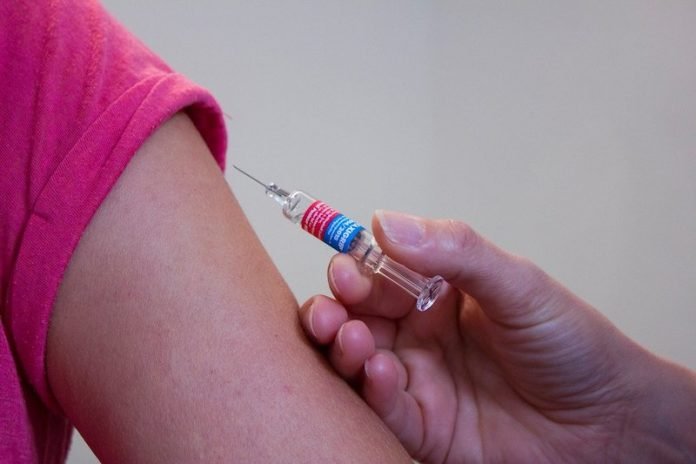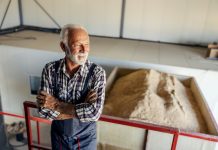
In a new study, researchers found an experimental COVID-19 vaccine is effective at preventing pneumonia in mice infected with the virus.
They made the vaccine from a mild virus genetically modified to carry a key gene from the COVID-19 virus.
The research was conducted by a team at Washington University in St. Louis.
Unlike many of the other vaccines under development, this vaccine is made from a virus that is capable of spreading in a limited fashion inside the human body, which means it is likely to generate a strong immune response.
The researchers created the vaccine by genetically modified vesicular stomatitis virus (VSV), a virus of livestock that causes only a mild, short-lived illness in people.
They swapped out one gene from VSV for the gene for a spike from SARS-CoV-2, the virus that causes COVID-19. The hybrid virus is called VSV-SARS-CoV-2.
Scientists think spike protein is one of the keys to immunity against COVID-19.
The COVID-19 virus uses spike to latch onto and infect human cells, and the human body generates protective antibodies targeting spike to defend itself.
By adding the gene for the spike to a fairly harmless virus, the researchers created a hybrid virus that, when given to people, ideally would elicit antibodies against spike that protect against later infection with the COVID-19 virus.
Scientists used the same strategy to design the Ebola vaccine by the US Food and Drug Administration approved in 2019.
That vaccine—made from VSV genetically modified with a gene from the Ebola virus—has been safely administered to thousands of people in Africa, Europe, and North America.
It helped end the 2018 to 2020 Ebola outbreak in the Democratic Republic of the Congo.
As part of the new study, the researchers injected mice with VSV-SARS-CoV-2 or a lab strain of VSV for comparison.
Researchers boosted a subgroup with a second dose of the experimental vaccine four weeks after the initial injections.
Three weeks after each injection, the researchers drew blood from the mice to test for antibodies capable of preventing SARS-CoV-2 from infecting cells.
They found high levels of such neutralizing antibodies after one dose, and the levels increased 90-fold after a second dose.
Then, the researchers challenged the mice five weeks after their last dose by spraying the COVID-19 virus into their noses. The vaccine completely protected against pneumonia.
At four days post-infection, there was no infectious virus detectable in the lungs of mice that had been given either one or two doses of the vaccine.
In contrast, mice that had received the placebo had high levels of virus in their lungs. In addition, the lungs of vaccinated mice showed fewer signs of inflammation and damage than those of mice that had received the placebo.
The experimental vaccine is still in the early stages of development.
The researchers are currently repeating the experiments in other animal models that are naturally susceptible to the COVID-19 virus.
If the vaccine also protects those animals from COVID-19, the next step would be to scale up production under what the Food and Drug Administration refers to as “good manufacturing practice (GMP) conditions” and launch a clinical trial in people.
One author of the study is Michael S. Diamond, a professor of medicine and a professor of molecular microbiology and of pathology and immunology.
The study is published in Cell Host and Microbe.
Copyright © 2020 Knowridge Science Report. All rights reserved.



